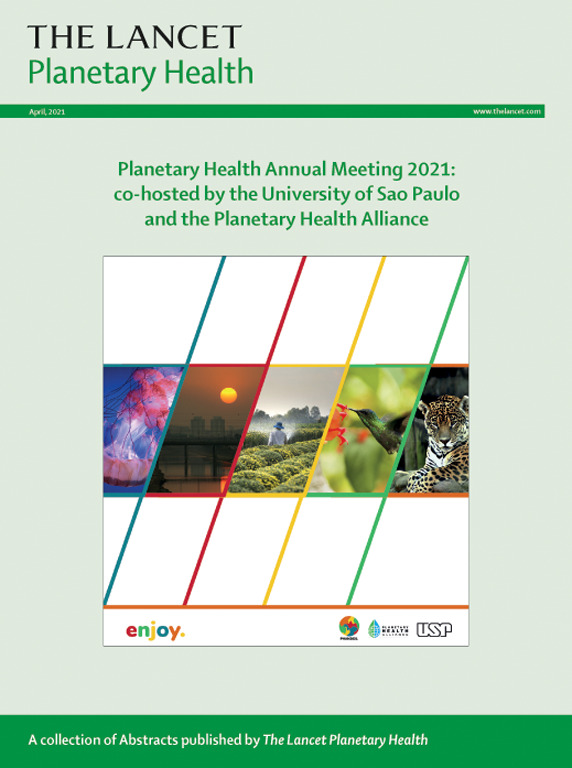符合净零排放的战略的公共卫生协同效益:系统审查。
IF 24.1
1区 医学
Q1 ENVIRONMENTAL SCIENCES
引用次数: 0
摘要
预计向净零排放社会迈进将为人类健康带来共同利益。然而,这些共同利益的大小几乎没有记录,并且可能是特定于环境的。综合这些共同利益的证据可以加强决策者和民众对气候缓解行动的参与。我们在PubMed、Web of Science和Scopus数据库中检索了从数据库建立到2024年1月1日之间发表的研究,确定了3976篇论文。其中,58项定量研究符合我们的纳入标准,并被纳入本系统综述。这58篇论文探讨了125种净零排放情景,并考虑了气候政策影响人类健康的各种途径。解决空气质量、身体活动和饮食变化的途径发现了巨大的健康协同效益,死亡率中位数降低了1.5%。国家或地方研究表明,净零排放政策将为当地空气质量带来巨大效益,而与邻国采取的行动无关。然而,这些共同效益因探索的排放部门、脱碳杠杆、建模方法和地点而异。包括成本效益分析在内的研究估计,货币化收益超过了实施气候政策的成本。这一系统审查强调需要一个标准化框架来评估和比较各部门气候减缓行动对健康的影响,并确认实现净零目标支持影响深远的公共卫生政策。翻译:摘要的法文翻译见补充资料部分。本文章由计算机程序翻译,如有差异,请以英文原文为准。
The public health co-benefits of strategies consistent with net-zero emissions: a systematic review
Moving towards net-zero emission societies is projected to provide human health co-benefits. However, the magnitude of these co-benefits is poorly documented and might be context specific. Synthesising the evidence on these co-benefits could enhance the engagement of decision makers and populations in climate mitigation actions. We performed database searches of PubMed, Web of Science, and Scopus for studies published between database inception and Jan 1, 2024, identifying 3976 papers. Of these, 58 quantitative studies met our inclusion criteria and were included in this systematic review. These 58 papers explored 125 net-zero emission scenarios and considered various pathways by which climate policies can affect human health. Pathways addressing air quality, physical activity, and dietary changes found substantial health co-benefits, with a median mortality reduction of 1·5%. National or sub-national studies showed that net-zero policies would yield substantial local air quality benefits, independently of the actions taken in neighbouring countries. However, these co-benefits varied with explored emission sector, decarbonisation levers, modelling approach, and location. Studies that included a cost–benefit analysis estimated that monetised benefits outweighed the costs of implementing climate policies. This systematic review highlights the need for a standardised framework to assess and compare health impacts of climate mitigation actions across sectors and confirms that achieving net-zero goals supports far-reaching public health policies.
Translation
For the French translation of the abstract see Supplementary Materials section.
求助全文
通过发布文献求助,成功后即可免费获取论文全文。
去求助
来源期刊

Lancet Planetary Health
Multiple-
CiteScore
28.40
自引率
2.30%
发文量
272
审稿时长
8 weeks
期刊介绍:
The Lancet Planetary Health is a gold Open Access journal dedicated to investigating and addressing the multifaceted determinants of healthy human civilizations and their impact on natural systems. Positioned as a key player in sustainable development, the journal covers a broad, interdisciplinary scope, encompassing areas such as poverty, nutrition, gender equity, water and sanitation, energy, economic growth, industrialization, inequality, urbanization, human consumption and production, climate change, ocean health, land use, peace, and justice.
With a commitment to publishing high-quality research, comment, and correspondence, it aims to be the leading journal for sustainable development in the face of unprecedented dangers and threats.
 求助内容:
求助内容: 应助结果提醒方式:
应助结果提醒方式:


